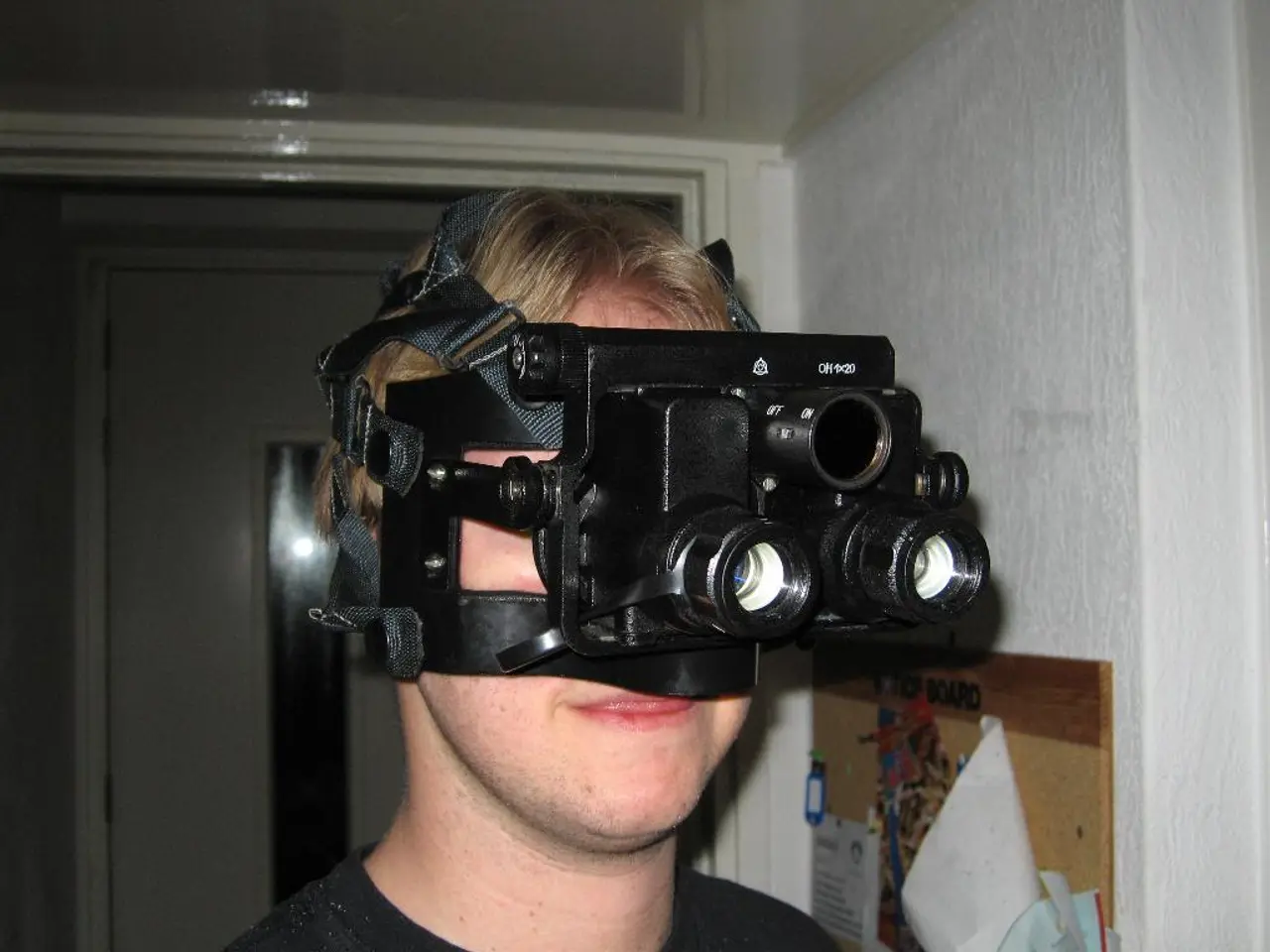Meta continues to invest in the development of the metaverse, according to recent reports.
The world of virtual reality (VR) is poised for significant growth, despite recent financial setbacks experienced by Meta's Horizon Worlds platform. According to market analysts, the immersive experience market is projected to grow at a compound annual growth rate (CAGR) of approximately 23.41% from 2025 to 2030, reaching an estimated global market size of around $144.17 billion by 2025 [1].
This expansion is driven by VR's increasing presence across diverse sectors, including enterprise applications, gaming, healthcare, and education. Meta, despite facing engagement challenges and significant losses in its Reality Labs division (over $68 billion since 2020) [2], still holds a dominant market share of about 77-84% in global VR sales as of late 2024 [2]. Analysts view Meta's sustained investment as a strategic long-term play to own the immersive interface and user data, which are expected to be central to future computing platforms.
Beyond entertainment, VR is gaining traction as a transformative tool for social media marketing. Traditional media is being surpassed by VR in terms of emotional engagement, with the VR social platforms market showing rapid growth from $1.5 billion in 2024 to an expected $2.67 billion in 2025 [3].
The potential of VR extends beyond entertainment. In the healthcare sector, the global healthcare AR/VR market is forecasted to hit $18.38 billion by 2034, driven by investments, research, and increasing adoption [5].
Despite short-term setbacks, such as Horizon Worlds' struggles and Meta's financial challenges, the overall future of VR remains strong and promising based on market trends and diversified applications across key industries [1][2][3][5].
In other developments, Meta's metaverse-building division, Reality Labs, has reported cumulative losses of $68.58 billion since 2020, with a $4.53 billion loss in Q2 of 2023. However, Meta's AR strategy is showing promising results, with the smart glasses representing a $60 billion bridge investment to mainstream AR adoption. Meta is also planning to develop extended reality for the US military, using wearable sensors for augmented reality.
The entry of competitors like Apple, Google, and Samsung signals industry consensus that spatial computing is inevitable. Meta's smart glasses, in collaboration with Ray Ban, have sold a million units across the EMEA region, with revenue tripling last year and four times more active users than in 2023. Recent search data shows a 20% year-on-year growth in 'AI glasses' searches.
Meta's massive AI investments are converging with its VR and AR efforts. Generative AI has become the focus of many tech companies, including Meta, which is investing heavily in AI and planning a 5GW data center for AI. Cahyo Subroto believes Meta's actions indicate a long-term hardware play to control the next interface layer.
However, there are challenges to be addressed. For instance, only 17% of US adults used a VR headset in 2023, indicating a long way to go for VR adoption. Crucially, Subroto believes Meta still feels early in terms of AI-native wearables, needing improvements in data sync, edge AI models, battery efficiency, and privacy.
AI-powered avatars, real-time translation, and contextual assistance are expected to make virtual and augmented reality essential. Some experts argue that Meta is not just building headsets but creating the infrastructure for the next computing paradigm.
Despite past failures, such as Google Glass and Apple Vision Pro, the future of VR remains promising. The potential for VR to revolutionise various sectors, from healthcare to marketing, is undeniable. As the technology continues to evolve and improve, we can expect to see VR becoming an integral part of our daily lives.
[1] MarketandMarkets
[2] Statista
[3] Newzoo
[5] Grand View Research
Read also:
- Steal a bargain on this weekend's best Apple products: MacBooks, iPads, and AirPods available at a discounted price on Amazon!
- Advanced Mirror Technology: Integration of AI, Internet of Things, and Display Advancements
- Discounted Jackery Explorer 2000 Plus kit on Amazon, offering a saving of over $2000.
- Xiaomi introduces Mi Smart Camera 4 Zoom: Boasts a 3-fold optical zoom feature








